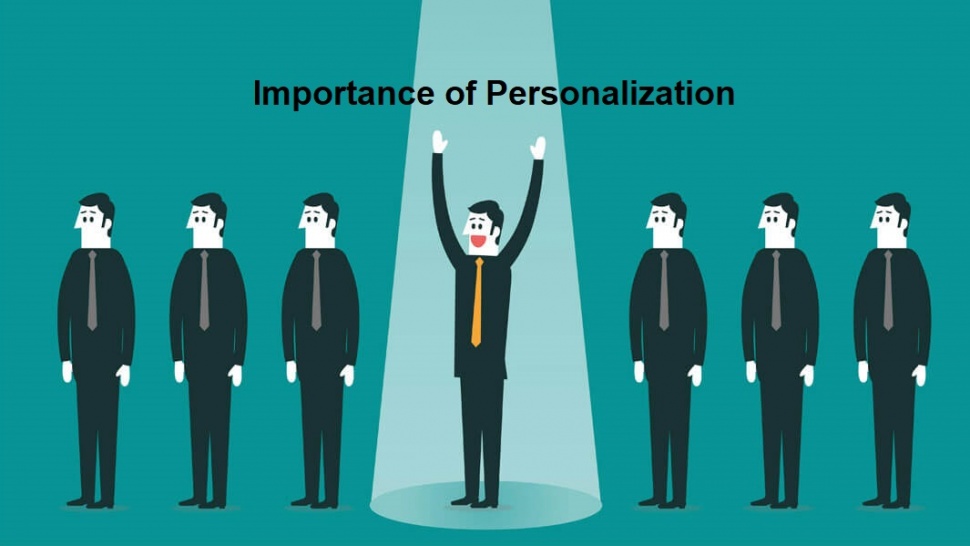If you are not focusing resources and energy into personalization, keep in mind that the competition is going to get ahead.
How can you best define ‘personalization’? Basically, it’s one-on-one marketing!
Talking one-to-one can be a very hard, time consuming work so many companies think it’s not worth the time, and money, to spend on this kind of communication. But looking it from a perspective of a customer, wouldn’t you like if someone talked to you on a personal, friendly level? I know I would!
Brands that interact with customers in this way build a much stronger relationship and it is very likely that customer will be back or engage your brand in some way in the future. Some way can be – digital way. By sharing a post, liking a picture etc, customers are willingly spreading word about your brand, and only because: you provided a good service and you talked with them personally.

But let’s give some order to thoughts about importance of personalization.
The most important aspect of personalization are the customers! Beside the fact that you want more or them, you should pay attention on the new and easier ways to approach them. With efficient use of data analysis, you can connect better with your customers by giving them exactly what they want when they want it.
Personalization requires a data-driven approach to content creation: Audience segments, behavioral data, and channel performance must all be a part of the process. Technology promises to help in multiple ways. Automatization and machine learning tools, for example, will let companies test everything from headlines to placement on a homepage. Targeted content boosting on social platforms like Facebook and LinkedIn can ensure your personalized content reaches the correct audience. And during the creation process, technology platforms like Contently can provide recommendations and insights based on industry trends and how your content performed in the past.
A multitude of loyal customers who make repeat purchases through your app is what you should be striving to achieve. I like to compare a personalized mobile experience to this: every day I go to the same local coffee shop because they address me by my name and know exactly what I want without me having to ask. I would not even consider going to the other coffee shop on the same street because I have already created my habit and it would take more effort than it is worth to develop a similar relationship with a new place. Personalization has the potential to do the same for your brand; show that you know your users and the relationship will grow.
I always like to put a bit of statistics in my articles. People love numbers, so check these:
According to a study by Magnetic (formerly MyBuys) and the E-tailing Group, a big percentage of consumers purchase more from retailers who:
• 53% suggest products based on browsing or buying behavior
• 52% are likely to engage with a new brand and purchase when they see relevant online ads based on current and past behavior
• 48% send personalized emails based on past browsing and buying behavior
• 48% personalize the shopping experience across all of their channels
Realize that personalization is here to stay, get into it and avoid the mistakes (lower end of linked article)
Special thanks to:
How Personalization Is Changing Content Marketing
Personalization: Why Does It Matter?




Share the News